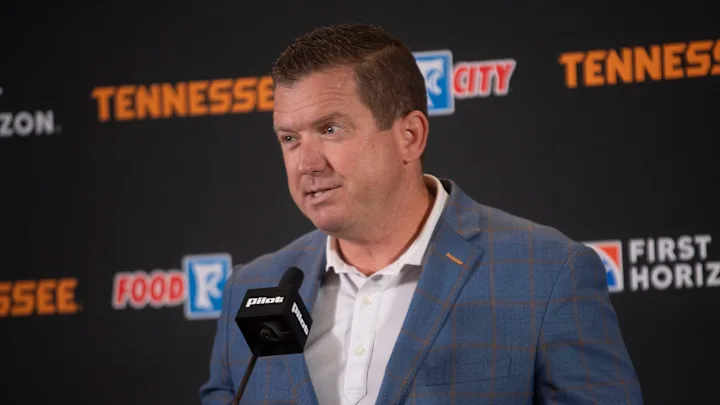The landscape of college athletics has been undergoing a significant transformation with the introduction of Name, Image, and Likeness (NIL) rights, allowing student-athletes to monetize their personal brands. While this development has been celebrated for empowering athletes, it has also introduced complexities, particularly concerning the transfer portal and the financial dynamics associated with player movement. One of the most notable instances highlighting these challenges involves Tennessee Volunteers’ quarterback Nico Iamaleava.
Nico Iamaleava, a highly touted recruit, joined Tennessee with high expectations. In 2022, he signed a groundbreaking $8 million NIL deal with the university’s donor collective, Spyre Sports. However, as market values for top quarterbacks soared, Iamaleava sought to renegotiate his deal, aiming to increase his annual compensation from $2 million to $4 million. When Tennessee declined his request, Iamaleava missed team meetings and practices, leading to his eventual departure from the program .
This incident has sparked widespread debate about the implications of NIL deals on college sports. Critics argue that such high-value contracts may incentivize players to prioritize financial gain over team loyalty and development. Moreover, the ability to transfer freely, coupled with lucrative NIL opportunities, could lead to a mercenary approach to college athletics, where players move based on the most favorable financial offers.
Tennessee’s Athletic Director, Danny White, has been vocal about the challenges posed by the evolving NIL landscape. He emphasizes the need for a balanced approach that considers both the financial interests of athletes and the integrity of college sports. White advocates for clearer regulations and guidelines to ensure that NIL deals enhance the student-athlete experience without undermining the foundational principles of college athletics .
The Iamaleava situation underscores the necessity for institutions, governing bodies, and stakeholders to collaborate in establishing frameworks that address the complexities introduced by NIL rights. Without such measures, the risk of further disruptions to team cohesion and the overall college sports ecosystem remains a pressing concern.
As the debate continues, it is evident that NIL rights have irrevocably altered the dynamics of college athletics. While they offer unprecedented opportunities for student-athletes, they also necessitate careful consideration and strategic planning to ensure the long-term health and integrity of college sports.



